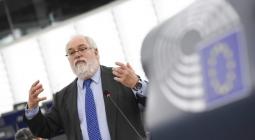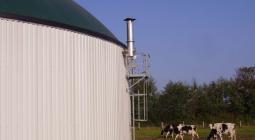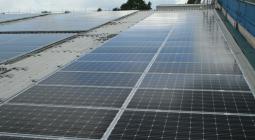EU funding: £649 million for clean energy infrastructure.

The European Commission is releasing €750 million (£649 million) of funding for clean energy infrastructure projects, such as nine priority corridors for integrating renewable energy into multiple countries.
Supporting the construction of necessary infrastructure, contributes to the Commission’s energy policy priorities of improving energy security, whilst giving consumers more choice, and spurring economic growth and jobs. These interconnections are also essential for renewable energy sources to thrive and make Europe world number one in renewable energy.
A fully interconnected European network is one of the key preconditions to deliver the ultimate goal of the Energy Union, i.e. to ensure secure, affordable and sustainable energy, which has been one of the top political priorities of the Juncker Commission throughout the mandate.
Commissioner for Climate Action and Energy, Miguel Arias Cañete said:
“Europe’s energy system is moving fast from an energy system of the last century to a low-carbon, more digital and consumer-oriented one. The energy transition is well underway in Europe, with record levels of renewable energy and rapidly falling costs.
“Europe’s energy infrastructure must develop in the same direction and with the same speed to fully support this energy transition towards a climate neutral Europe”.
The completion of a fully interconnected Internal Energy Market, will allow a cost-efficient decarbonisation of the energy mix by favouring a better integration of intermittent renewable energy and contributing to deliver collectively the EU targets of at least 32% for the share of renewable energy consumed as well of the at least 40% domestic reduction in greenhouse emissions by 2030 compared to 1990, in line with our international commitments under the Paris agreement.
A climate neutral European economy at the horizon 2050 will be achieved only with an adequate and smart infrastructure ensuring optimal interconnection and sectoral integration.
Increased cross-border and regional cooperation will allow reaping the full benefits of the modernisation and transformation of Europe’s economy.
Background
The 2019 CEF Energy call for proposals will be open until 13 June 2019. To apply for CEF Energy funding, projects must first be designated Projects of Common Interest (PCIs). PCIs need to have a significant impact on at least two EU countries and must increase competitiveness, enhance the EU’s energy security and contribute to sustainable development and environmental protection.
The received proposals for financing, which can be for studies or construction works, will then be evaluated against several additional criteria. These criteria include their state of maturity, their benefits in terms of security of supply, solidarity or innovation, and to what extent public support is needed to remove financing bottlenecks.
CEF-Energy envisages a total budget of €5.35 billion (£4.63 billion) for trans-European energy infrastructure for the period 2014-2020. In order to be eligible for a grant, a proposal has to be ‘a project of common interest’ (PCI).
When completed, the projects will each result in significant benefits for at least two Member States, enhance security of supply, contribute to market integration, and enhance competition, as well as reduce CO2 emissions.
The Union-wide list of Projects of Common Interest is updated every two years. The latest PCI list was published by the Commission in November 2017.
The CEF-Energy has allocated €3.4 billion (£2.94 billion) to PCIs to date.
March 2019





